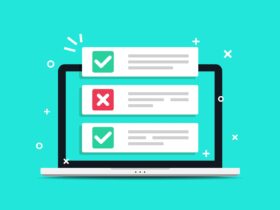

Your online reputation is no longer a background detail. It’s your credibility, your first impression, and often, your deciding factor—whether someone hires you, dates you, partners with your company, or walks away. What most people overlook is that this visibility isn’t just about optics—it’s value. In today’s world, your online reputation functions like a form of hidden wealth: intangible, often underestimated, yet capable of influencing real-world outcomes such as income, trust, and access.
What Is Online Reputation?
Your online reputation is the collective perception of you or your business based on what people find when they search. This includes Google results, social media posts on Facebook and Twitter, online reviews, media articles, blog content, and even old forum comments. It reflects opinions, consumer sentiment, and shared experiences—sometimes positive, sometimes not.
Think of it as your digital bank account of trust. Every post, review, or shared insight either adds to or detracts from your credibility.
Why It’s a Hidden Form of Wealth
In a reputation-driven world, visibility and credibility convert to real-world value. A strong online presence helps you attract new customers, drive sales growth, establish brand authority, and stay ahead of your competitors. For individuals, it can influence job offers, speaking opportunities, and networking success.
Just like financial assets, your online reputation can grow or diminish depending on how carefully you manage it. It may not appear on a balance sheet, but it affects how people view your expertise, service quality, and trustworthiness.
For example, a personal brand that consistently posts high-quality content and receives positive reviews creates lasting trust, something money alone can’t buy.
What Impacts Online Reputation?
Several factors can affect and shape online reputation:
-
Google Search Results: The first page of search results speaks louder than your resume. It’s often the first thing people see—and believe.
-
Online Reviews: Platforms like Yelp, Trustpilot, and Google Reviews show customer feedback that influences purchasing decisions.
-
Social Media Activity: Posts, comments, and responses on Facebook, Twitter, and LinkedIn all reflect your tone, opinions, and values.
-
Customer Feedback: Positive reviews boost consumer trust; negative comments can derail perception fast if not addressed.
-
Content You Control: Creating blog posts, company updates, and brand-driven media gives you a voice in the conversation.
In short, what people discover online about a person or business can quickly shape their reputation, for better or worse.
Get started with your free reputation evaluation today
For Businesses: Reputation Affects Sales and Survival
Companies today cannot afford to ignore the importance of their online reputation. Customer opinions posted online directly impact consumer sentiment, sales volume, and market position. Reviews from real consumers often carry more weight than a polished marketing campaign.
A few mistakes or unchecked complaints can lead potential customers to competitors. On the other hand, collecting and promoting positive reviews can drive growth and brand loyalty.
Reputation management tips for businesses:
-
Monitor online reviews regularly and respond to customer feedback
-
Encourage happy customers to share positive experiences publicly
-
Address negative comments with professionalism and care
-
Create useful content that highlights your expertise and service quality
A well-managed online reputation builds long-term credibility and earns the trust of both existing and new customers.
For Individuals: Your Reputation Reflects Your Future
A person’s online presence is often the first thing employers, clients, or even friends see. What you post, like, or comment on becomes part of the story people tell themselves about you. That story affects everything from job interviews to networking invites.
Failing to manage your digital footprint can lead to lost opportunities. Even a single careless post or outdated opinion can damage trust and cast doubt on your judgment.
Tips for managing your personal reputation:
-
Carefully audit your digital presence: Google your name and identify any outdated or negative content
-
Make smart use of privacy tools and settings to limit who sees what
-
Post valuable, positive content that reflects your brand and goals
-
Stay professional when sharing opinions, especially on public platforms
Protecting your personal brand isn’t about hiding who you are—it’s about being intentional with what you share and how it may be perceived.
How to Build and Protect Your Digital Asset
Your online reputation is a valuable asset that requires consistent attention and care. Fortunately, there are tools and strategies to help manage and improve it over time.
1. Control Your First Page on Google
Claim and optimize all key online profiles to enhance your online presence. Ensure that your LinkedIn profile, personal website, and company bio accurately reflect your strengths and current achievements.
2. Use Monitoring Tools
Set up alerts to track mentions, reviews, or unexpected activity. Staying informed is essential for a quick response.
3. Respond with Care
Speak clearly, professionally, and directly when responding to feedback. Your tone and transparency reflect your brand’s values.
4. Create Meaningful Content
Post regularly about your field, service successes, or lessons learned. Examples, insights, and authentic stories build authority.
5. Get Help When Needed
Reputation management experts can help address serious issues, such as defamatory content, outdated search results, or privacy breaches, when someone posts or shares personal information without consent.
The Risk of Ignoring Your Reputation
Some people only realize the importance of their online reputation after it’s too late. A bad review, negative article, or unflattering photo left unchecked can spread quickly, damaging both your brand and your bottom line.
Consequences of neglect include:
-
Lost job opportunities or client leads
-
Decline in trust from consumers, partners, or peers
-
Long recovery timelines and reputational repair costs
-
The emotional toll and stress from the loss of control
Don’t wait until you’re cleaning up a mess. Take control of your reputation now and establish a solid foundation for long-term success.
Final Thought
Your online reputation is a hidden form of wealth—a personal or business asset that grows with care and declines with neglect.
In a world where search results speak before you do, and where customers form opinions in mere seconds, managing your digital presence is no longer optional. It’s essential.
If you want to discover how your reputation looks today, use our free tool to run a Reputation Score scan. It might reveal more than you think.
















Leave a Reply